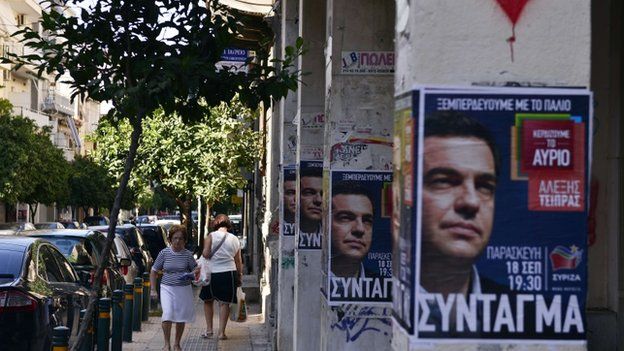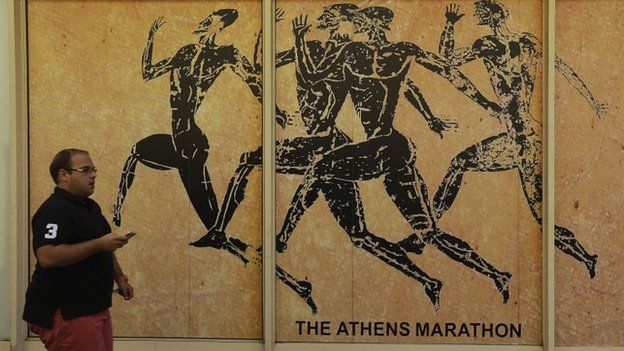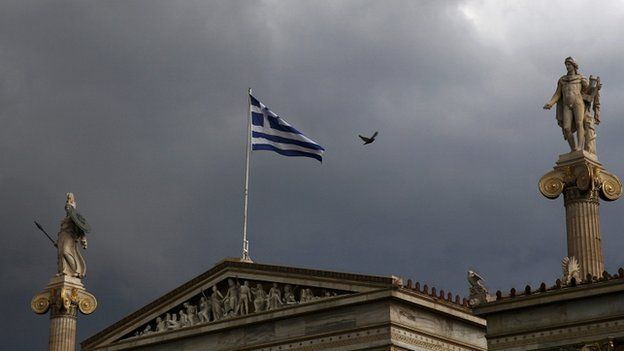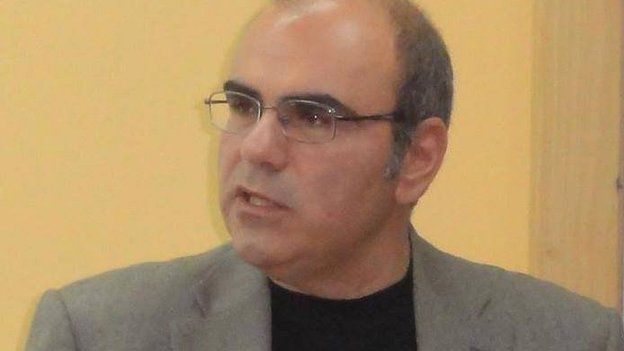Greek tragedy for education opportunities
- 30 September 2015
- Business
 Thinkstock
Thinkstock
When considering the effects of the debt crisis on Greece, most people probably think of long queues outside banks and protests in the streets.
A less visible but perhaps further reaching outcome is that Greece's education system has become one of the most unequal in the developed world.
Although education in Greece is free, public schools are suffering from spending cuts imposed as a condition of the bailout agreements.
In practice, over the last 30 years it has become increasingly necessary for students to pay for expensive private tuition to pass the famously difficult Panhellenic exams required to get to university.
But with unemployment rising and salaries falling, many poor and middle-class families are struggling to pay for this extra tuition.
A World Economic Forum report this month ranked Greece last of 30 advanced economies for education because of the close relationship between students' performance and their parents' income.
And a professor of law and economics at the University of Athens warns that losing talented students from poor backgrounds is a "national catastrophe" which could hinder Greece's long-term economic recovery.
Tuition costs
Greece's education system was designed around the principle of equality.
Article 16 of the constitution guarantees free education at all levels and university admission is decided solely by performance in the nationwide Panhellenic exams.
 Getty Images
Getty Images
But the low quality of some public education in Greece, and the difficulty of the Panhellenic exams, has led to a parallel education system being set up.
The majority of students in Greece attend private classes called "frontistiria" or one-to-one tuition in evenings and weekends.
In 2008, the year before the crisis, families with children in upper secondary education spent more than 950m euros (£704m) on these lessons, which represented nearly 20% of these households' expenditure - more than any other European country.
"If a student does not attend frontistirio, he is a dead man for the exams," said Dimitra Kakampoura, a 22-year-old student who took the Panhellenic exams in 2011.
More stories from the BBC's Knowledge economy series looking at education from a global perspective and how to get in touch
Ms Kakampoura prepared for the exams with three hours of tuition every day for three years and was accepted to a very competitive course at the Athens University of Economics and Business.
"I would not have succeeded without frontistirio and private lessons," she says. "I found I knew the course before the teacher at school taught it to us.
"My tuition cost 500 euros (£371) a month. Many students give up their dreams, because it is impossible for them to pay this."
Widening gap
Andriana Filippou, 23, went to a public school in Akrata in the north Peloponnese and is now training to be a lawyer. She received private tuition from three teachers, five times a week, in the year before the Panhellenic exams.
 AP
AP
"This cost my parents more than 220 euros (£163) a week and I really doubt if they would be able to pay the same amount of tuition for me today," she admits.
A study in 2005 showed that students from the wealthiest families in Greece received nearly four times more private tuition than the poorest.
With average incomes down by a third and unemployment rising to over 25%, this gap is likely to have widened.
"It is a very bad system," says Christos, a taxi driver from Piraeus whose two sons have recently finished school.
"I did not have money for frontisiria so my children could not become doctors or lawyers."
One now works in a school kitchen, the other in a sports equipment shop.
Parallel system
The system of frontisiria has existed for decades and one of Syriza's election pledges was to reverse the tax on private tuition agreed with Greece's lenders in July.
 Reuters
Reuters
There are 37,000 tutors registered with private tutoring companies and many are also public school teachers who need to top up their low salaries.
In some cases, students are taught by the same teachers in school and private tuition which creates what a European Commission report called "perverse incentives".
Aristides Hatzis, a professor of law and economics at University of Athens, believes reform of the education system in Greece is urgently needed to give students from lower income families a better chance of going to university.
He says that the loss of bright students from low-income backgrounds, combined with the emigration of more than 200,000 students to universities abroad in the last five years, is a "catastrophic loss of human capital" that could make Greece's economic recovery more difficult in future.
"The problem is not just about money but a lack of evaluation and meritocracy in schools - evaluation is an alien concept in the Greek system," he says.
"The level of teaching in Greek schools is often very low, but attempts at evaluating teachers and structures have been resisted because teachers do not want to lose their jobs.
"So teachers often do not have the right training, or if they are trained their knowledge is never updated."
Low results
His view is supported by the recent World Economic Forum Inclusive Growth and Development Report, which scored Greece last of 30 advanced economies for education.

Professor Panos Tsakloglou, who has researched inequality in Greece, says education should be a priority.
"Education is the single most important factor that shapes the overall distribution of income and influences the probability of poverty," he says.
He says attempts were made by the former education minister Anna Diamantopoulou in 2010 to examine the structure of education in Greece and set up special public schools for poorer students, but politicians and various interest groups resisted these changes.
But Prof Tsakloglou believes the debt crisis could become a catalyst for change.
"So far the political willingness is not there. But with schools closing because of loss of funding, Greece might be forced to consolidate the education system in a more efficient way." BBC
No comments:
Post a Comment